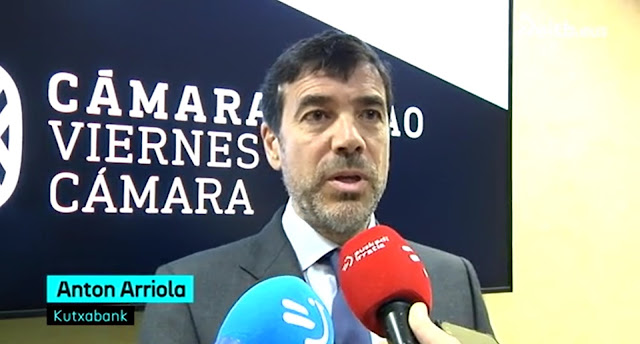La Ikastola, a recognizable model
Can the universality of education be guaranteed only with the exclusive ownership of the public administration? Is there any segregation at ikastolas? Are ikastolas elitist? Do the ikastolas make sense today when they are taught in Basque at the public school?
In general, we could say that, in addition to educational cooperatives (the ikastolas), the debate on the contribution of cooperativism to Basque society is still alive. About three decades ago, when the Basque Public School Act was passed in 1993, there was intense debate. At present, the negotiations on the Education Pact have brought the debate back into question.
I believe that in order to address this debate in depth, we should know the keys that will help us to better understand and value the model of the ikastolas and I wanted to do my bit by writing a document of about 30 pages in that direction. Here are just the main headlines.
How did the ikastolas emerge and what enabled their creation? What were the first motivations of the ikastolas? What about now? Today the ikastolas have communist roots? Do they have the potential to transform society? Why were they interesting and why are they interesting? Taking the Basque as the axis of the educational project and the Basque culture, are the ikastolas still Basque national institutions? Is the cooperative paradigm also valid in education? Are self-management and cooperativism values typical of the school? Can school leadership be put into the hands of the educational community? What should be the degree of autonomy of schools with regard to administration?
I should like to underline an idea in that direction. That any experience that is organised is, without a doubt, good news. In fact, from this key of self-organization, the protagonists participate fully in the organization, making the most relevant decisions of the project. And self-management and cooperativism, also in the education sector, are by definition positive.
"Any experience that is organized, without a doubt, is good news"
I believe that at this moment and in this context, before students, faculty, families, collaborators and society, the sense of the ikastola model must be strengthened. The participation of the workers of the ikastolas in the ownership of the educational cooperative should be encouraged as a step further in the deepening of the model. In addition, it is necessary to guarantee, yes or no, the right to universal education in ikastolas and to promote a pedagogical transformation beyond innovation. Foster family participation, combining organizational transformation, comprehensive management and reconciliation. Revitalize Basque identity by connecting territory, culture and language with the educational project in an indissoluble way. We must also make progress in consolidating the link with the community through the implementation of social transformation projects in cooperation with other institutions. And finally, I would say that we must guarantee the educational vocation and motivation of the teaching staff and demand the social recognition of this profession.
Lately, there is a political and social momentum that proposes a unitary educational model. In this confluence, diversity, even with regard to educational models, is good in itself. Diversity has intrinsic value. Our organizational botanical garden in the educational field cannot lead us to monoculture, there may be a risk of loss of identity and dilution in those beautiful and ambitious intentions.
Let us look with pride and in the face of the cooperative experience of the ikastolas, without fear of detecting weaknesses and challenges, lights and shadows, with confidence, commitment and strength to face them. We have an unbeatable opportunity to make the two transformations: pedagogical and institutional transformation. Drinking the water that is always new from the old source of always.
* Andoni Mujika, former director of the Ikastolas Kurutziaga and Ibaizabal of Durango
and is former President of Arizmendi Ikastola
Bidali zure iritzi artikuluak iritzia@argia.eus helbide elektronikora
ARGIAk ez du zertan bat etorri artikuluen edukiarekin. Idatzien gehienezko luzera 4.500 karakterekoa da (espazioak barne). Idazkera aldetik gutxieneko zuzentasun bat beharrezkoa da: batetik, ARGIAk ezin du hartu zuzenketa sakona egiteko lanik; bestetik, egitekotan edukia nahi gabe aldatzeko arriskua dago. ARGIAk azaleko zuzenketak edo moldaketak egingo dizkie artikuluei, behar izanez gero.
You may not know who Donald Berwick is, or why I mention him in the title of the article. The same is true, it is evident, for most of those who are participating in the current Health Pact. They don’t know what Berwick’s Triple Objective is, much less the Quadruple... [+]
The article La motosierra puede ser tentadora, written in recent days by the lawyer Larraitz Ugarte, has played an important role in a wide sector. It puts on the table some common situations within the public administration, including inefficiency, lack of responsibility and... [+]
Is it important to use a language correctly? To what extent is it so necessary to master grammar or to have a broad vocabulary? I’ve always heard the importance of language, but after thinking about it, I came to a conclusion. Thinking often involves this; reaching some... [+]
The other day I went to a place I hadn’t visited in a long time and I liked it so much. While I was there, I felt at ease and thought: this is my favorite place. Amulet, amulet, amulet; the word turns and turns on the way home. Curiosity led me to look for it in Elhuyar and it... [+]
Adolescents and young people, throughout their academic career, will receive guidance on everything and the profession for studies that will help them more than once. They should be offered guidance, as they are often full of doubts whenever they need to make important... [+]
We have had to endure another attack on our language by the Department of Education of the Government of Navarre; we have been forced to make an anti-Basque change in the PAI program. In recent years, by law, new Model D schools have had to introduce the PAI program and have had... [+]
Public education teachers have the need and the right to update and improve the work agreement that has not been renewed in fifteen years. For this, we should be immersed in a real negotiation, but the reality is deplorable. In a negotiation, the agreement of all parties must be... [+]
A few weeks ago, on Diputación Street, in the centre of Vitoria-Gasteiz, two men threw a homeless person off the small landing outside the place where he slept. In addition to being thrown away, a metal railing was immediately placed in front of the lonja. Although the place... [+]
From linguistics or glotophobia and, of course, hatred against Basque, we have often seen our Basque become the dandruff of all sticks. Last of all, the president of Kutxabank, Anton Arriola, has been shaking our language and giving us galantas.The President of Kutxabank,
... [+]
Do not look for this connection from Ezkio or Altsasu, let alone crossing the Ebro River through Castejón. The connection, or rather the connections, between the Basque Y and the AVE of Navarre is already a reality. It is these links in the plural that should concern us and... [+]
Don't make a fuss, don't confront, don't victimize... and obey. As oppressed subjects, in this case as Basques, we talk, how many times have we had to listen to them? Ironically, two years ago, at the Euskalale Independentiston Meeting, Esne Arzallus said: "We have arrived here,... [+]
Aurten "Israel Premier Tech" txirrindularitza talde israeldarra ez da Lizarraldeko Miguel Indurain Sari Nagusia lasterketara etorriko. Berri ona da hori Palestinaren askapenaren alde gaudenontzat eta munstro sionistarekin harreman oro etetea nahi dugunontzat, izan... [+]
Intsumituek denbora luzez egindako borroka gogorra eta mingarria izan zen, baina irabazi zuten, eta garaipen hura behin betikoa izango zela uste genuen, atzera bueltarik gabea. Baina badirudi, politikari batzuen ahotik aterata, eskalada militaristari gorazarre egin eta berriz... [+]
Punto Bobo liburuaren irakurketan murgilduta, Itxaso Martin Zapirain egilearen Eromena, Azpimemoria eta Isiltasunak Idazten ikerketa lanean sentitu nuen egiazkotasun eta maila etikoarekin egin dut berriz ere topo. Eta hortaz, hara bueltatu. “Oihu izateko jaio zen isiltasun... [+]










